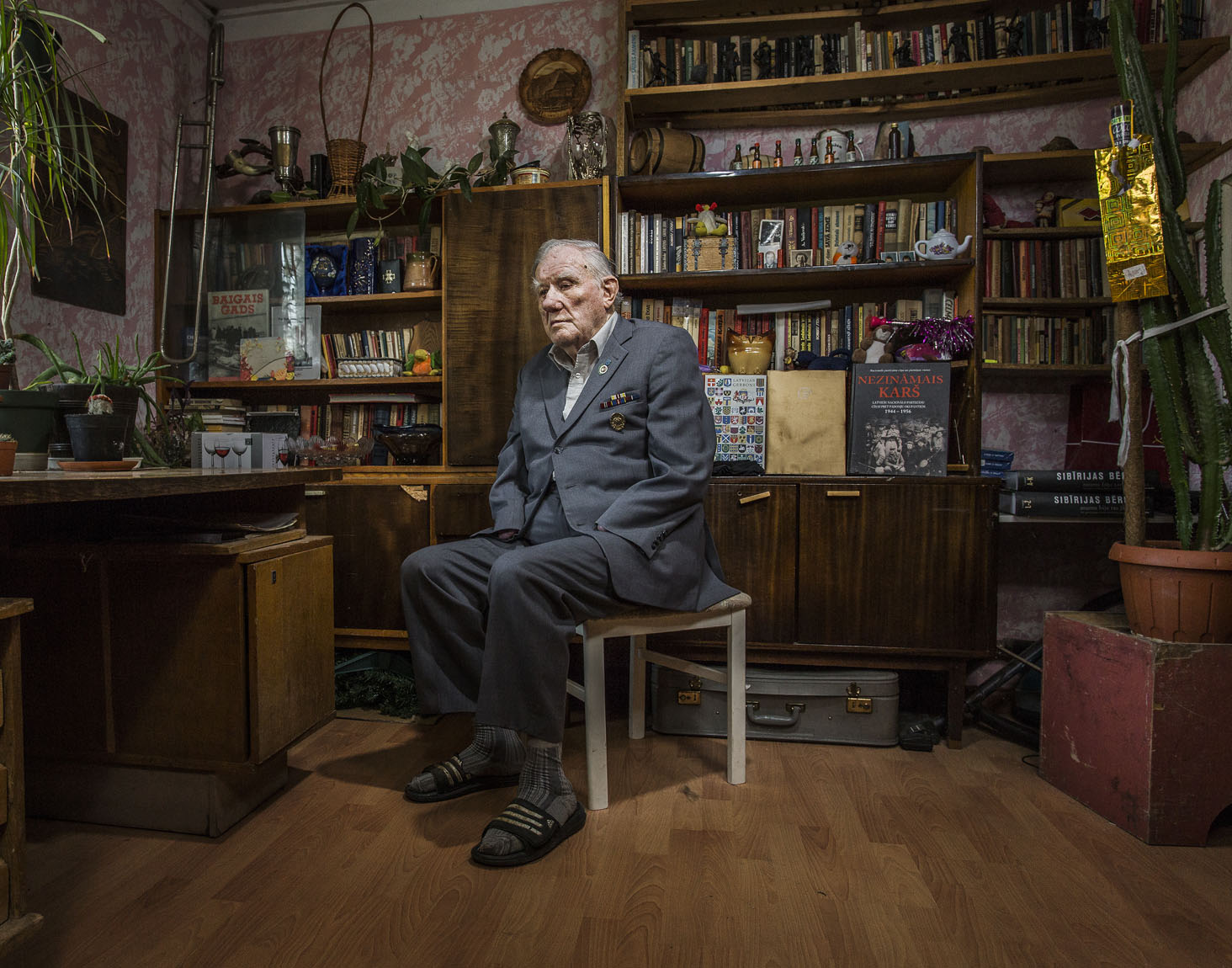The beginning of my childhood was difficult after the First World War. Eventually, my family had managed to acquire some land. By 1939, we were doing very well. I remember these as good times. In 1938, we could afford a bicycle.
We had no thoughts of going to war. In school, we were taught that Germany was our biggest enemy. But in 1940, when the Red Army occupied Latvia, that perspective shifted dramatically.
When Germany attacked Russia on June 22, 1941, we thought they would be our liberators. On May 1, 1943, I attempted to volunteer for the army. I was sixteen, so they didn't take me. A general had us all in a line and said, "Those who are underage, step forward." There were fifteen of us. They sent me back to Bauska. I found work at the police station. By then, Latvia was under German administration.
In 1944, the Red Army was pushing back and closing in on Bauska. On July 28 of the same year, I joined the volunteer force. I was finally eighteen. But there were people who were as young as fifteen and as old as eighty years old, and everyone wanted to fight the Russians. No one wanted another Soviet occupation. We waged guerrilla war for several weeks. I was injured on September 14, 1944. That's where the war ended for me. I was injured in the fight where twenty-eight Soviet T-34 tanks went up against two hundred Latvian conscripts. We were trying to cross a river, but the Russians came at us from all sides. There were planes flying over, tanks on the ground, artillery fire. It was hell. Many men died trying to swim across the river. We had six mine throwers and all the men that knew how to use them were dead. I tried to use one from a rooftop, but a tank fired at the building and everything caved in beneath me. I was brought to a German hospital. My right arm was only attached by skin, so they cut it off. My left was completely smashed. The doctor there told me I had twenty-eight injuries total.
By February 1, 1945, the Americans had invaded Germany. The soldiers put signs on hospital doors that forbade patients to leave the area. After a few days, all the Latvians there got together and literally cried, not because the war was ending, but because they knew Latvia will be once again occupied by the Russians. On April 9, we were free to go. I knew a Latvian woman who had married a German. I went to see them and they gave me a room, but they were short on food. I stayed there until the Americans handed that territory over to the Russians. I no longer remember the name of the town we were in. Eventually I was arrested for taking part in the resistance.
I was moved across different concentration camps in Germany, Poland and Russia. Most of the people held alongside me ended up in Siberia, where they would remain for decades. I was the only one that didn't go. I hadn't done anything wrong. I told them if they thought I had, I wanted them to shoot me right away.
When I was free, I returned to my home, only to be mistaken for a vagrant by my mother before she realized who I was. After three days back in Bauska, I tried to get my documents. But I was arrested and jailed for two weeks. They asked me for a list of names of all the people I worked with during the war. I gave them one and was set free. I still didn't have any documents, so I couldn't find work. I yielded to failure and left Bauska. I married a woman in Riga. I found a job there as a security guard for different shops. When my boss discovered that I hadn't served in the Red Army, he fired me after only three months of employment. I couldn't find another job. I started my own business and that's how I earned money to raise my children.
